On October 5, 2022, the UST Publishing House, in partnership with the UST Museum, launched Sapantahang Wika by National Artist for Literature Virgilio S. Almario at the Main Building lobby.
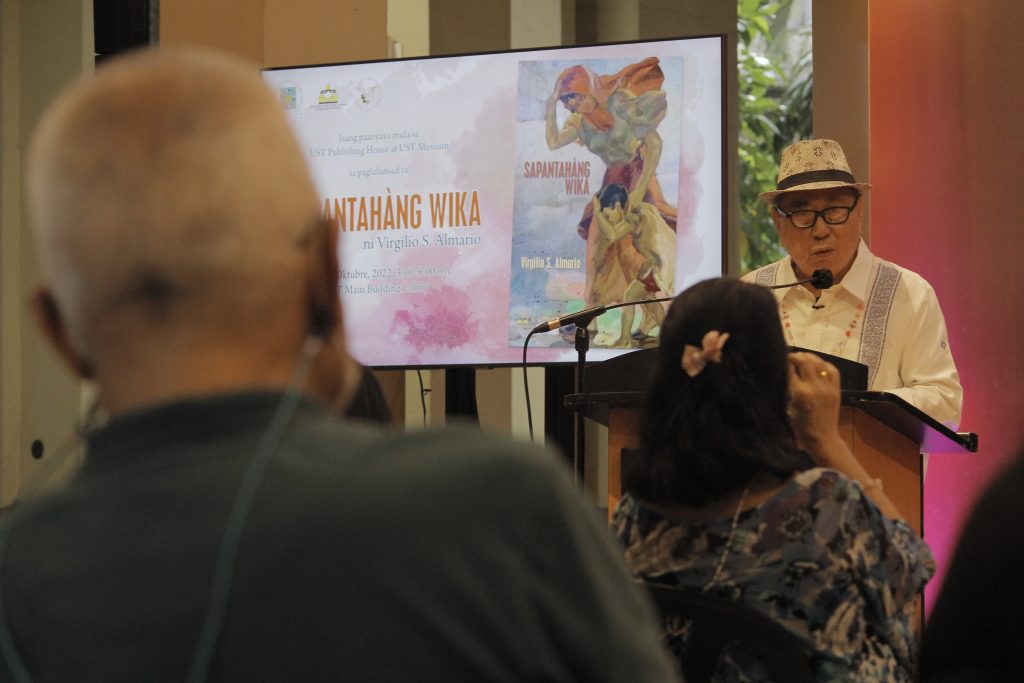
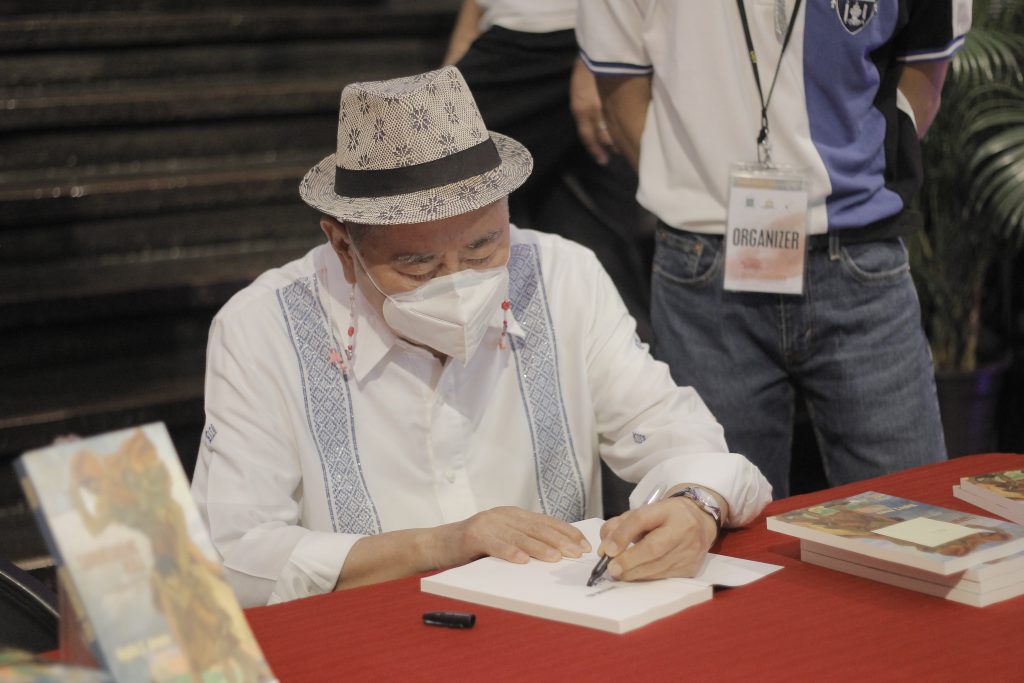
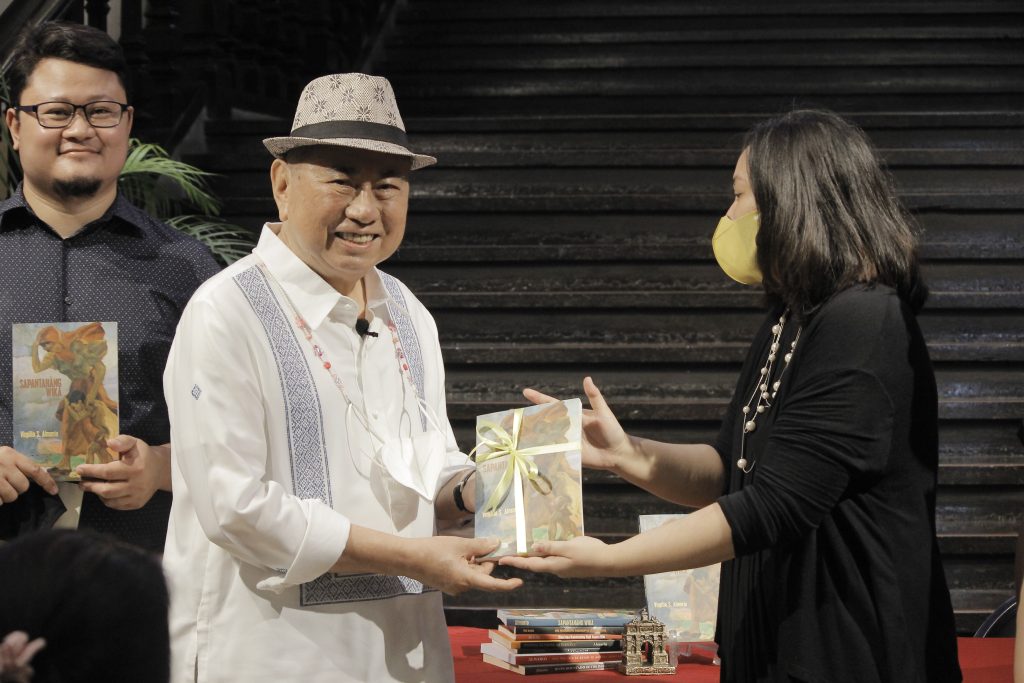
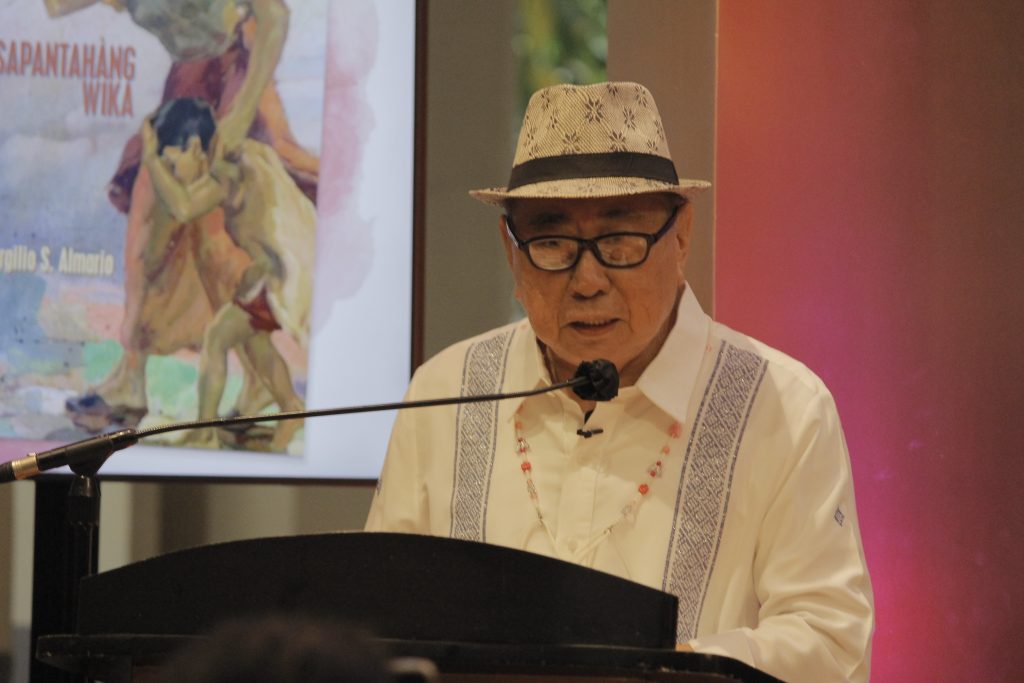
Makata ng Wika ng Bayan
In his message delivered in Filipino, Almario underscored that poets are merely symbols for all writers and then added that poets of national language are the lovers of their nation’s language. “Isa itong haka tungol sa wika ng makata. Katulad ng ibang mamamayan, ang makata ay anak ng wika, ang wika ng bayan. Katulad ng mga kababayan, hinuhubog ng wika ang kanilang kamalayan. Samantalang hinuhubog ito ng kanilang lunggati at pangangailangan,” Almario said.
Moreover, Almario added, the poets have an intense yearning for language to address his needs. “Anak man siya ng wika, kailangan ng makata na hubugin pa ang wika alinsunod sa kanyang adhika at mithi bilang manlilikha,” he said.
“Kailangan niyang maging makata ng wika. Kailangan niyang likhain ang wika ng kanyang kamalayan, ang wika ng kanyang pagiging makata, iyon ang kanyang pangunahin at natatanging tungkulin bilang anak ng kanyang wikang bayan, ang tungkuling ikinatatangi niya sa bayan at isang natatanging tungkulin niya para sa kanyang mga kababayan,” the National Artist added, establishing the significant role and duty of poets.
Almario likewise insisted that poets must forefront the discovery of the “genius of national language”, saying that “Kailangan niyang (the poet) ganap na mag-agap, ang taal na kakayahan at kapasidad, at ang maibibiyayang kabuluhan o potensyal ng wika,”
Honoring the Nat’l Artist as a philosopher
Department of Philosophy Chair and Research Center for Culture, Arts, and the Humanities researcher Asst. Prof. Marella Ada M. Bolaños, PhD highlighted the National Artist’s work entitled Alamid ng Guni-guni, which examined the duty and the “weaponization” of Filipino language in the field of education against the stern influence of “Americanization”, which attempted to suppress the history and the native language of the indigenous people.
Moreover, Bolaños shared that their faculty members turn to the National Artist’s written and translated children stories in their philosophy classes for children. “Kaisa ang aming kagawaran sa mga adhikaing isinalaysay ni Almario sa kanyang akdang Sapantahang Wika, sapagkat maari ding magsilbi bilang mahalagang bukal ang wika tungo sa lalong pagpapayabong ng pilosopiya at pamimilosopiya hindi lamang sa akademikong espasyo, kundi lalo’t higit sa mga pagtatangkang lalong unawain ang ating sarili, ang ating bayan, at ang ating pananaw sa mundo,” Bolaños said.
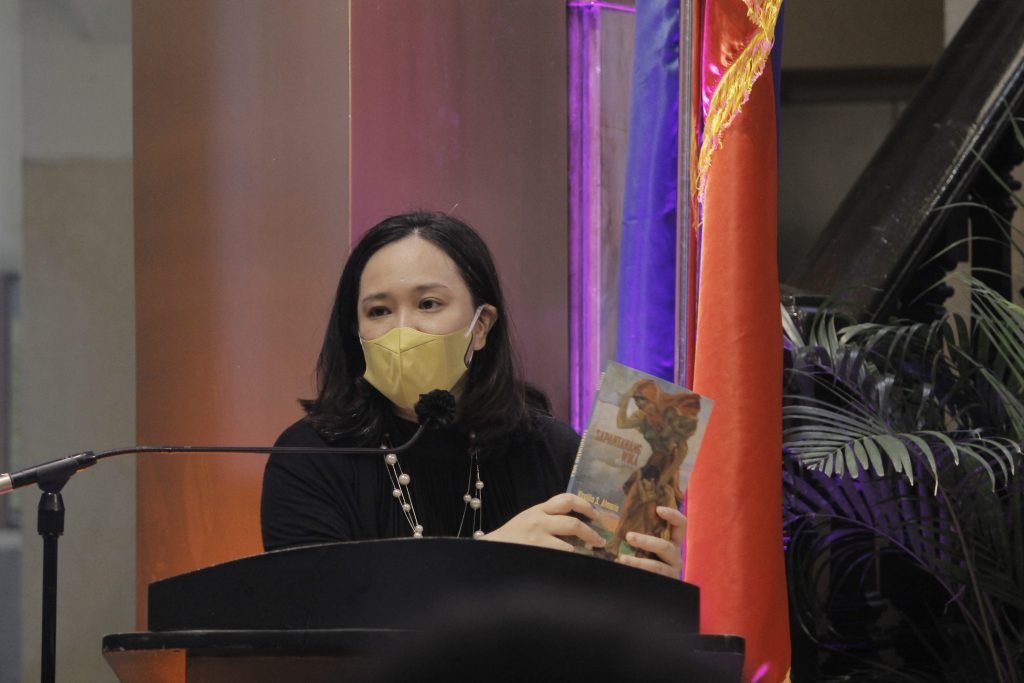
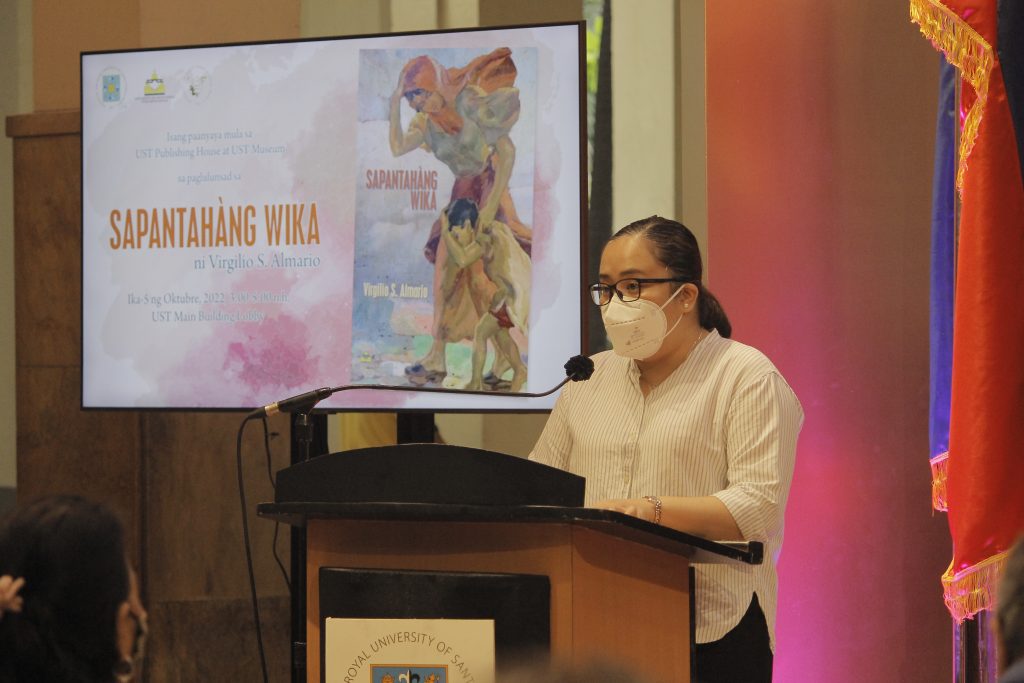
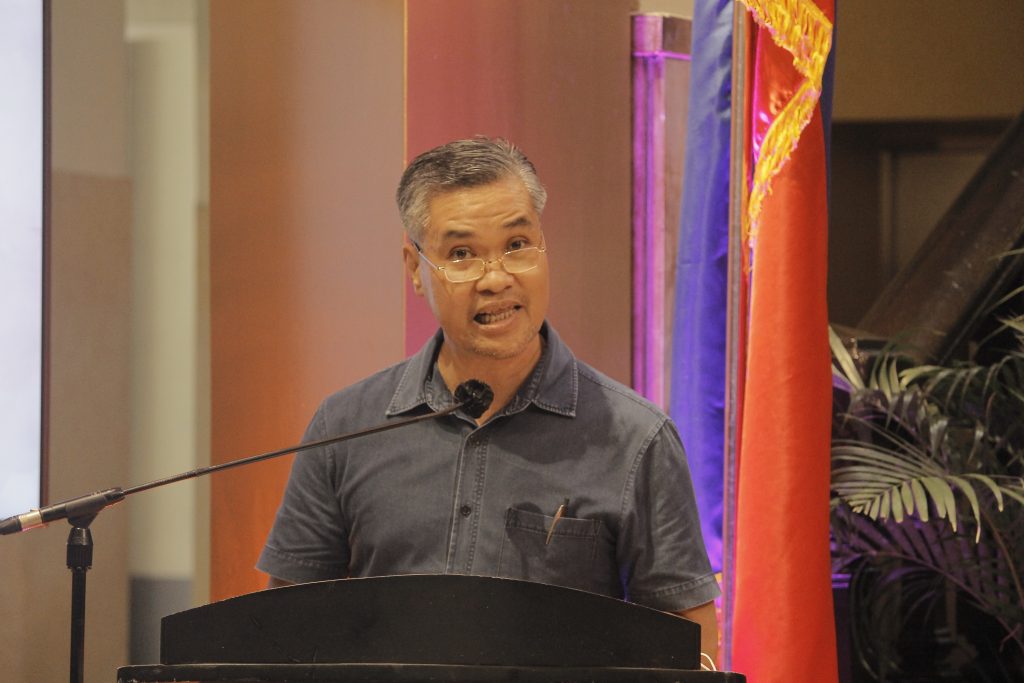
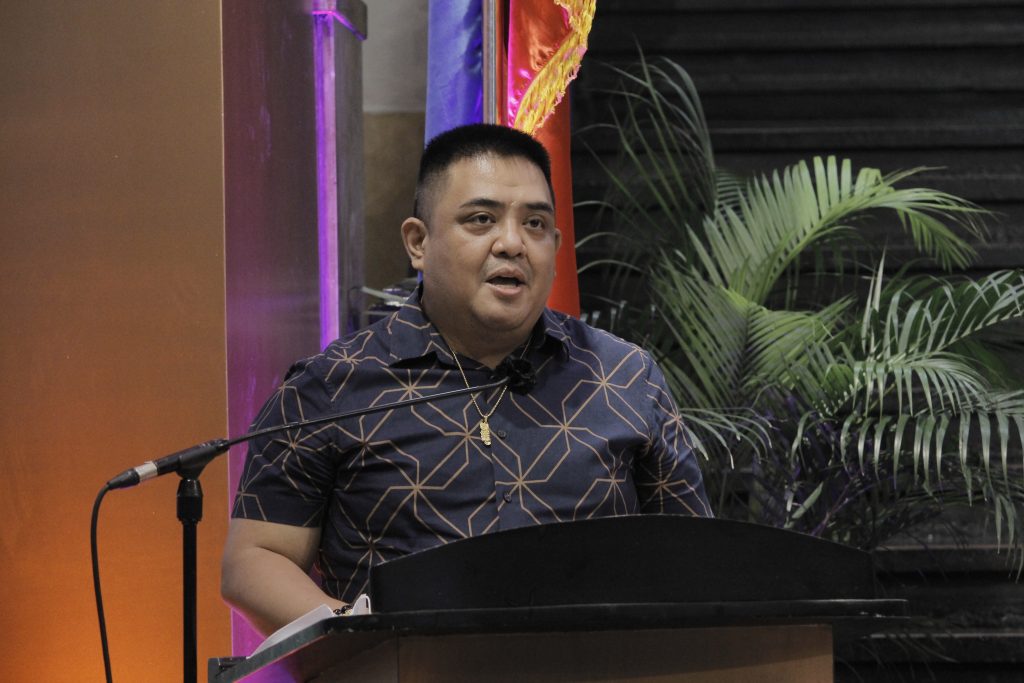
Assoc. Prof. Jovito V. Cariño, PhD, former Department of Philosophy Chair, noted that philosophers expressed their works through their own language, mentioning Aristotle, Rene Descartes, Nicolaus Copernicus, John Locke, and even St. Thomas Aquinas, the University’s Patron, who found solace in writing his Theological works in Latin.
However, according to Cariño, the dominion of Latin fell due to the emergence of new breed of writers who wrote in different languages inside and outside the academe, at that time, thus heralding a new chapter for language. He also noted that language and its effectiveness relies on people using it. “Nakasalalay ang bisa nito sa paggamit, sa klase ng pag-gamit, at sa tamang pangangalaga,” he noted.
For Mr. Marvin Einstein Mejaro, MA, a faculty member of the Department of Philosophy and Chair of the Humanities and Social Sciences Strand of the UST Senior High School, Almario’s work revisited the past not for the sake of nostalgia but to reclaim Filipino language’s rightful place. “Parating mas malalim ang pagnanais niyang bumalik, parating mas mapangahas at mas matapang ang programa niyang reklamasyon,” Mejaro said. “At kakatuwang sa kanyang pagbabalik, mas marami at mas marami siyang nasusumpungan na nagiging daan upang bumalik siyang muli at simulan ang paghalukay,” he added.
Lastly, Assoc. Prof. Louie Jon Sanchez of the University of the Philippines – Department of Broadcast and Communication praised the National Artist who continued to be productive both as himself and as his nom de plume despite the Covid-19 pandemic, thereby publishing 4-5 books since 2020.
Moreover, Almario maximized the use of social media platforms for his poems. “Si Rio Alma, bilang nagpapatuloy na makata sa panahon ng smartphone at Facebook, at si Virigilio S. Almario, na walang pagod sa pagususlat ng kritikal na prosa hinggil sa kultura, panitikan at wika. Kumatha rin siya ng mga bagong kritisismo na pinalad akong mabasa […] isa sa mga iyon ang aklat ng hapong ito, ang Sapantahang Wika.” Sanchez said.
Also known as Rio Alma, the prolific writer’s literary and critical works delved in the roots of Filipino language. He is also responsible for the revival and reinvention of traditional Filipino poetic forms. He bagged the prestigious Carlos Palanca Memorial Awards numerous times in his writing career.
In 2003, he was proclaimed the National Artist for Literature for the “strength of his work–in poetry, criticism, translation and children’s books–and the impact of this work on contemporary Filipino literature and the Philippine literary scene, through the various roles he has been fulfilling with vigor”. He also served as the Chairman of Komisyon ng Wikang Filipino from 2017 to 2020.
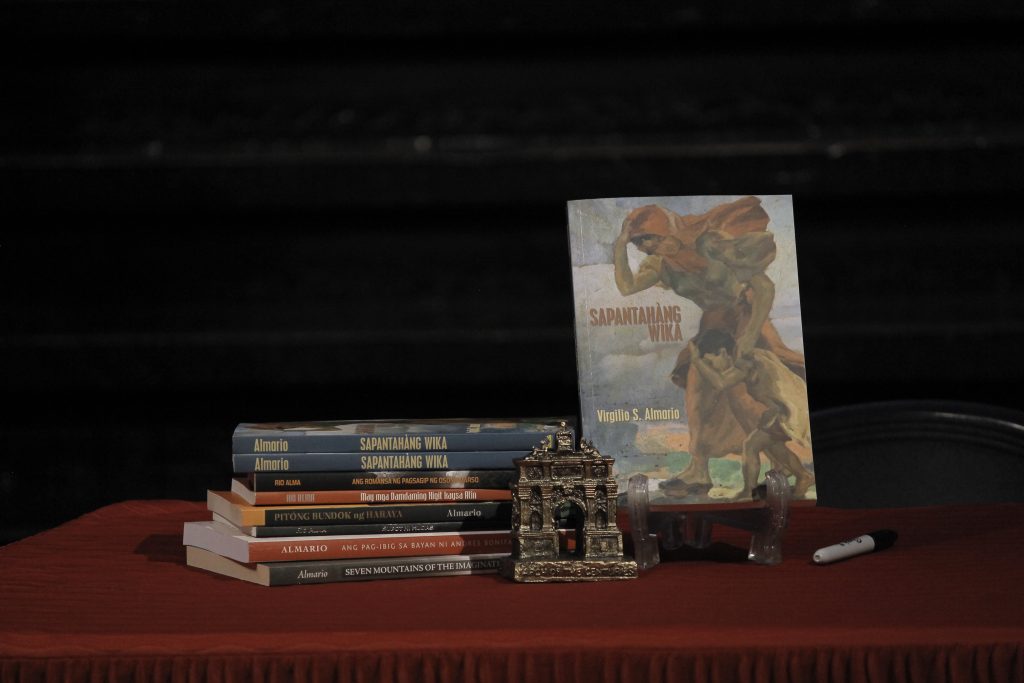
Through UST Museum’s generosity, the book cover’s artwork is from the painting of National Artist Carlos “Botong” Francisco. Botong’s painting is one of UST Museum’s treasured collections.
In attendance also was the renowned dramatist and screenwriter, and the newly minted 2022 National Artist for Film and Broadcast Arts, Ricky Lee.
Photos by Hans Lawrence V. Malgapu




